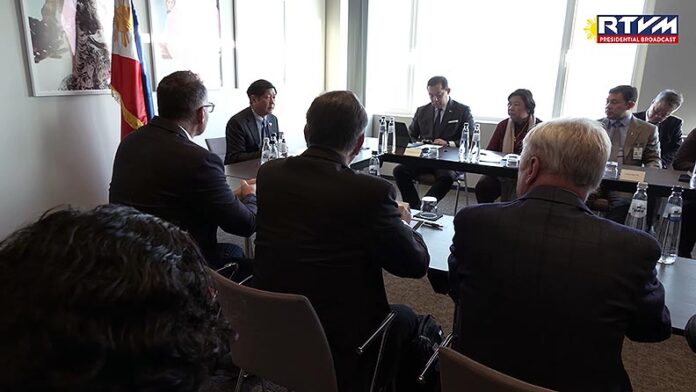
-
Shipping industry stakeholders have welcomed the Philippines’ pledge to act on deficiencies identified by the European Maritime Safety Agency in the country’s maritime education, training and certification system
-
Industry groups, in particular, welcome the Philippines’ creation of an advisory board to address deficiencies identified by EMSA and offer to work with the team to ensure the country keeps its key role in global shipping
-
As many as 50,000 Filipino seafarers face being barred from crewing European Union-flagged vessels over qualification issues
Shipping industry groups and unions have welcomed the Philippines’ pledge to address deficiencies identified by the European Maritime Safety Agency (EMSA) in the country’s maritime education, training and certification.
The groups, including the International Maritime Employers Council, International Chamber of Shipping and International Transport Workers’ Federation, issued a joint statement welcoming the Philippines’ creation of an advisory board to address the deficiencies identified by the European Commission (EC).
Malacañang in a statement said President Ferdinand Marcos Jr. issued the directive during a meeting with various organizations representing seafarers, shipowners and other maritime employers on the sidelines of the Association of Southeast Asian Nations-European Union (ASEAN-EU) commemorative summit in Brussels, Belgium.
“The creation of this advisory board is an inspired initiative which, we are convinced, will soon help steer the country towards calmer seas,” IMEC chief executive Francesco Gargiulo said in a statement.
“We look forward to working with this team on current and future challenges to ensure the Philippines retain their key position at the table of global shipping,” Gargiulo added.
ICS secretary general Guy Platten noted the importance of seafarers whom he said are “at the very heart of our industry and cannot be forgotten as we look to the future.”
“Our industry’s importance cannot be underestimated and the collective representation within the maritime sector today shows the willingness to work together for a brighter future,” Platten said.
“As ever, our industry strives to find solutions to the challenges ahead, ensuring safe shipping operations for the effective continuation of global trade. We look forward to working more closely with the Philippines.”
Delegates were reassured during the meeting to hear Marcos pledge that his administration will do “everything” to address these deficiencies identified by the EMSA, the bloc’s maritime regulator, “to prevent job losses among Filipino seafarers.”
In the joint statement, the groups said employers and crew are concerned that as many as 50,000 Filipino seafarers face being barred from crewing European Union-flagged vessels over qualification issues.
The threat stems from a warning by EMSA that the Philippines needs to address unacceptable deficiencies in crew’s education, training and certification as its failure to do so would push out Filipino seafarers.
The groups also urged Marcos during the meeting to defend Filipino jobs by reforming the country’s problematic seafarers’ claims industry.
While intended to secure speedy resolution and compensation for injured and aggrieved crew, the groups said the injury claims industry system today sees seafarers’ hardships and goodwill exploited by ambulance-chasing lawyers.
It added that the victimization of Filipino seafarers by people or groups to make fraudulent and costly injury claims against their employers, has led companies to look elsewhere for their seafarer workforce.
In 2000, Filipino crew made up 28.5% of the global seafarer population. By 2020, however, that figure had dropped to just 14%. Any further decline would jeopardize the US$6.54 billion in wages that Filipino seafarers send home each year to their families, the groups pointed out.
Marcos said during the meeting that he had ordered Department of Migrant Workers Secretary Susan Ople to establish a maritime advisory committee to address the training issue and consider reforms to the broken seafarers’ claims system.
The International Advisory Committee on Global Maritime Affairs (IACGMA) will draw on experts from both industry and the workforce to support the Philippine government. IMEC, ICS, ITF and the International Labor Organization will all be invited to share their expertise.
The groups said the proposed committee’s advice could be key as the Philippines, like other global maritime leaders, looks to navigate its way through the challenges of the future, such as climate change.
A recent Maritime Just Transition report revealed that as many as 800,000 seafarers will need some form of training or familiarization by the mid-2030s to handle the fuels, technology and vessels of the future.
Understanding what was needed for the Philippines to make the most of the opportunity decarbonization provides would be critical to securing an equitable and sustainable future for its seafarers and the industry, the groups noted.
Since 2006, the Philippines has yet to pass with flying colors the EMSA audit, which checks the country’s compliance with the 1978 International Convention on Standards of Training, Certification and Watchkeeping for Seafarers (STCW).
The EC, in an assessment report, has identified nine shortcomings and 23 grievances in the country’s maritime education, training, and certification system. The assessment report was the result of EMSA’s latest re-assessment conducted in 2020.
In March 2022, the Maritime Industry Authority officially submitted to the Delegation of the European Union in the Philippines the country’s response to the EC’s assessment report.
Aside from the actions that have already been implemented, MARINA said the Philippines committed to undertake additional corrective measures to ensure the continued improvement of its system and sustain the gains of its strategic initiatives.
RELATED READ: Gov’t drawing up maritime industry development plan




